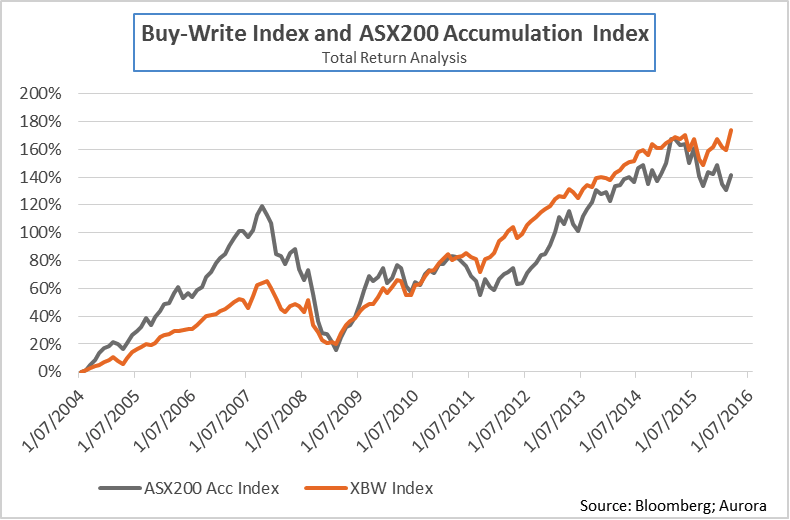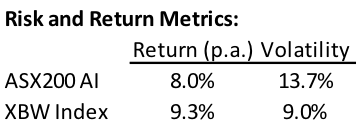A strategy for uncertain times
Currently, the official cash rate in Australia is 1.75%, and we are expecting a further cut in August 2016 to 1.5%. This will likely push the benchmark 1-year term deposit rate below 2%, which will further ratchet up the pressure on retirees requiring an income that don’t enjoy baked beans on toast with the frequency that small children do!
How Buy-Write Strategy Works
As an owner of a share in a company you have the right to either sell this stock today or sell the rights (or option) to someone else to buy that share off you at a point in the future for a price (premium). Here a seller of a call option receives a premium per share and foregoes some upside in capital value. Alternatively, if the price falls the holder keeps both their stock plus the premium paid, effectively creating an additional income stream. For example, in March 2016 a holder of Westfield Corporation (trading at $9.75) could choose to sell a $10.25 Call option out to June and would have received 30c per share. This strategy yields a superior return where Westfield gains less than 8% over a three month period.
As a fund manager employing this strategy, we are looking to systematically exploit excessive investor optimism or greed over the short term share price movements for a company. While in bull markets this caps the upside that an investor gets from owning a share, in flat or declining markets the buy-write strategy boosts the income you receive from owning a share and dampens the impact of market falls. Additionally writing calls over long held positions doesn’t generate the capital gains tax that for example selling a share in Commonwealth Bank acquired in 2000 at $25 would.
Writing naked calls is a higher risk version of this strategy and involves selling options in securities that you don’t own. The risk in selling naked calls is that if the price of the underlying stock rises precipitously, the naked call writer will be forced to go out and buy that stock in the market when the holder exercises their call option.
Benchmarking
ASX devised a buy-write index (“XBW Index”) in 2004 to measure the rate of return of a quarterly buy-write strategy applied to the S&P/ASX 200 Price Index with dividends reinvested:
Based on historical returns the following is evident over the past twelve years:
- The buy-write strategy outperforms in neutral and down markets
- The buy-write strategy underperforms in buoyant markets
- The buy-write strategy is less risky (as defined by Volatility – which is the annualised standard deviation of returns)
Can returns be maintained?
Using the same methodology as XBW Index and current options pricing an investor can expect the following returns annually on a standstill basis:
Options Premium: 9.5%
Dividends on Underlying: 4.4%
Expected Standstill Return: 13.9%
The premium received, and dividends act as a “cushion” in falling markets, thus reducing portfolio risk. Heightened uncertainty should keep options pricing at or above historical levels (referred to as “implied volatility”).
Aurora Property Buy-Write Income Trust (ASX: AUP)
AUP is a quality style portfolio of Australian Real Estate Securities that we manage as a buy-write fund by selling call options against the underlying stocks in this portfolio to generate additional income for investors. In addition, Aurora employs the following strategies in options markets to further enhance returns and mitigate risk:
- Purchasing puts to provide further capital protection
- Active management (e.g. buy back sold call options where far out of the money, rolling out put protection)
- Price at which call is struck determined by valuation (e.g. Westfield Corp is trading at $11 with an in house valuation of $11.25. Aurora sells an $11.25 call, leaving 25c capital growth “on the table”)
Our Take
Investors have a range of tools to protect themselves during uncertain times. Generating additional income through a buy-write strategy has proved a winner through market cycles.
Written by Andrew Ward, Senior Portfolio Manager at Aurora Funds.
Article contributed by Aurora Funds: (VIEW LINK)
6 topics
1 stock mentioned



